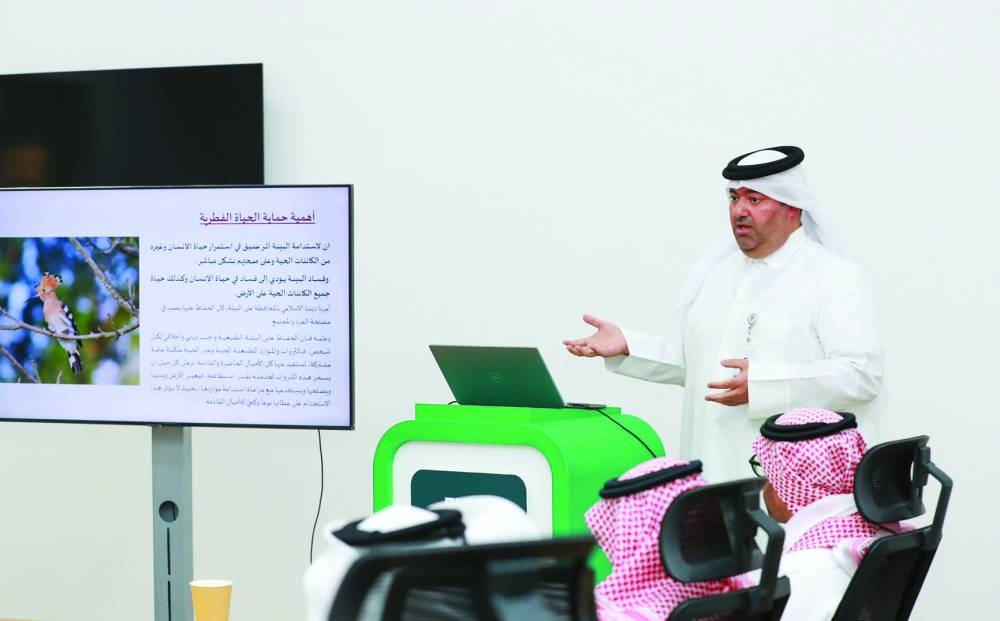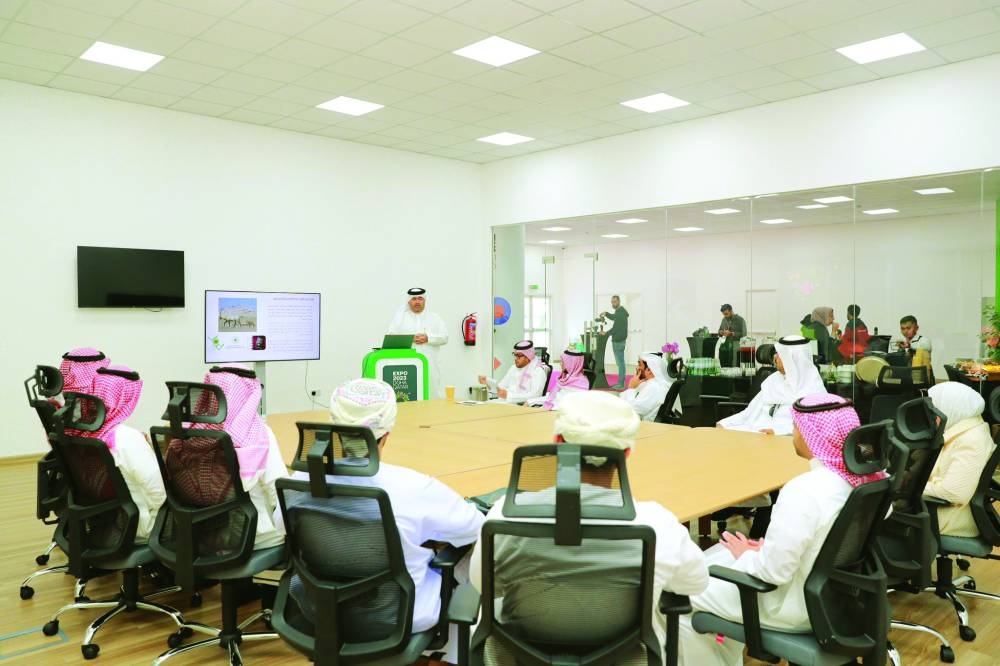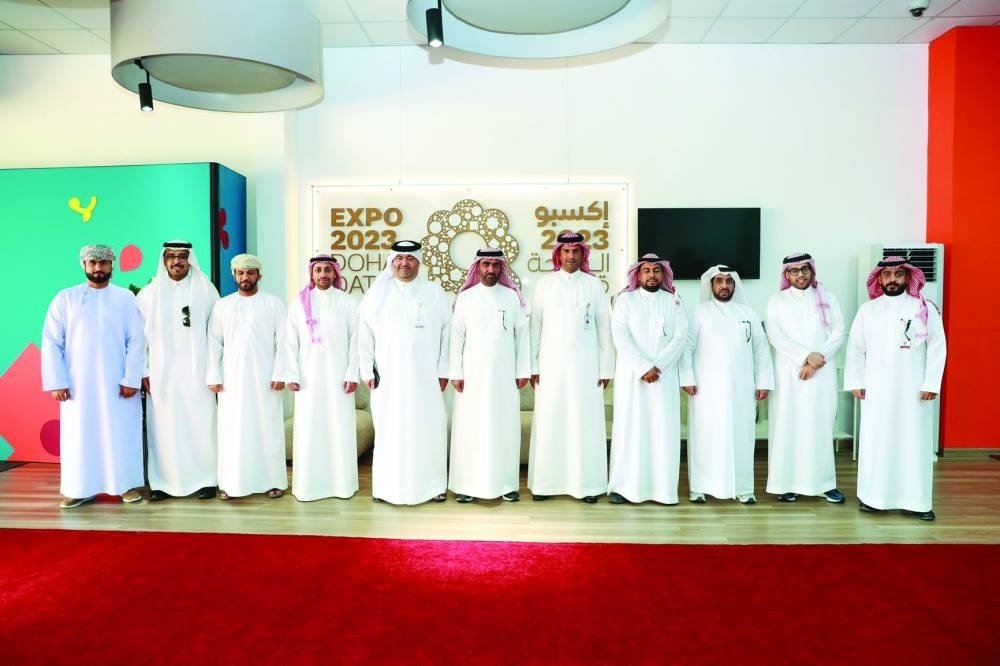The Ministry of Environment and Climate Change has participated in a workshop at the International Horticultural Expo 2023 Doha, where it reviewed national efforts to preserve biodiversity.
The workshop was held at the conference center and organized by the General Secretariat of the Gulf Co-operation Council (GCC), marking the GCC Biodiversity Day held this year under the theme "Balancing Life through Harmony with Nature and Protecting It."
The workshop discussed Qatar's efforts over the past years in environmental protection, biodiversity conservation, and safeguarding endangered local species. It highlighted the role of laws and legislation in providing a healthy environment for all residents, reducing pollution, and preserving the natural balance and biodiversity.
During the workshop, Mohamed Ahmed Al Khanji, Director of Wildlife Development at the Ministry of Environment and Climate Change, expressed thanks to the GCC for organizing the GCC Biodiversity Day 2023 as part of Expo 2023 Doha.
He stressed that environmental development and conservation, including biodiversity, are key pillars of Qatar's National Vision 2030. To implement this vision, the country has formulated its first and second national development strategies, leading to the establishment of the Ministry of Environment and Climate Change in 2022 to work towards environmental protection and contribute to sustainability.
Al Khanji highlighted Qatar's unique biological diversity, encompassing a wide range of distinctive plants, wildlife, and marine organisms. He discussed the country's legal initiatives aimed at protecting and increasing this biodiversity, maintaining the diversity of the Qatari environment.
He further talked about the programmes and projects for the conservation of wildlife and biodiversity in Qatar, such as the conservation of biodiversity of lizards project. In addition, he pointed out the breeding and propagation programmes for endangered animals, including Arabian oryx, gazelles, ostriches, houbara bustards, and wild rabbits.
He also highlighted the efforts regarding sea turtle protection along Qatar's coasts since 2002, which is a project held annually. Besides, there is a study on the impact of banning camel grazing on natural vegetation in Qatar. The results of the study led to the extension of the grazing ban.
He further he noted the excellent efforts exerted by Qatar to propagate the mangrove plants since 1982, in addition to a study on mangrove tree clusters on Qatar's coasts, and the conservation of natural mangrove trees in the Al Khor and Al Thakhira area, which was designated as a natural reserve in 2005.
Al-Khanji highlighted the ministry's initiatives regarding the shark whale monitoring, dugong monitoring, coastal ecosystem rehabilitation, and the national programme for rehabilitating coastal ecosystems and maintain them in collaboration with Qatar University and Qatar Foundation since 2022.
He stressed the ministry's role in organizing events to spread awareness of environmental sustainability among the Qatari society. These events included the Qatar Regional Forum for Whale Shark Conservation 2023, the Wildlife Forum (Hunting as a Hobby and Sustainable Environmental Protection 2023), and the Wild Plant Life Forum (Qatari Land, Our Sustainable Heritage, Let's Preserve It 2023).
Regarding natural reserves, He explained that Qatar makes significant efforts to protect endangered species, including establishing and expanding natural reserves. There are 11 natural reserves, covering about 29% of the country's total area, include both land and marine areas, with 27% of the land reserves and 2% coastal and marine reserves, contributing to the conservation of endangered species and enhancing biodiversity in the country. In particular, the Al Reem Reserve was designated as a UNESCO Biosphere Reserve in 2007, becoming the first of its kind in the world network of biosphere reserves.



